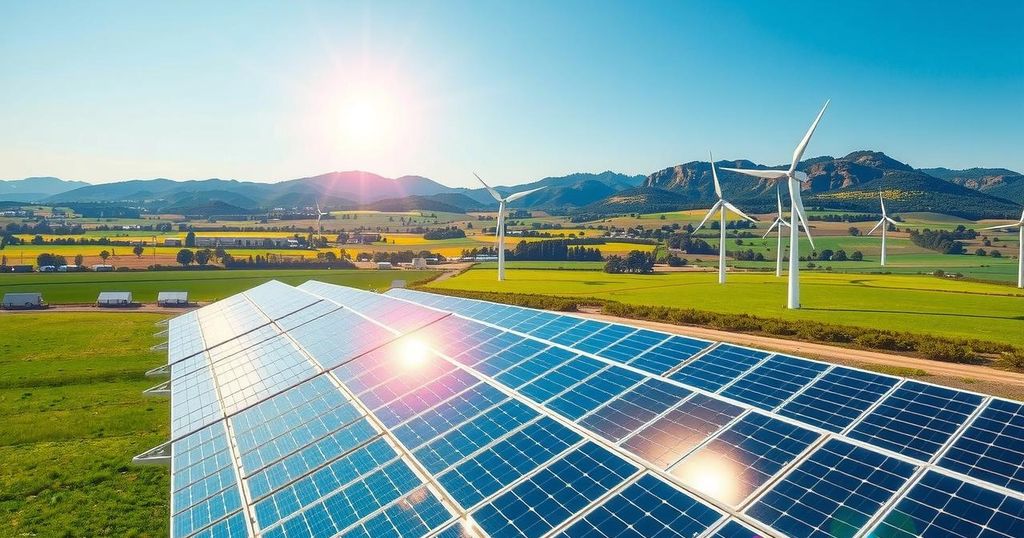The International Renewable Energy Agency reports a record global installation of renewable energy in 2024, with 92.5% from clean sources and China contributing 64%. Despite significant growth, the world is projected to fall 28% short of the 2030 renewal energy tripling goal. UN officials emphasize the critical need for a faster transition to renewable energy amidst global climate challenges.
The global installation of renewable energy reached a historic peak in 2024, with an impressive 92.5% of new electricity generation coming from clean sources such as solar and wind, as reported by the International Renewable Energy Agency (IRENA). Notably, nearly 64% of this new capacity came from China, reflecting a growing commitment to sustainable energy solutions worldwide.
In total, the world added 585 billion watts of renewable power, marking a 15.1% increase from the previous year. Solar and wind energy combined constituted 46% of the global electricity output. Despite this significant advancement, projections indicate that the world is on track to be 28% short of the target to triple renewable energy output by 2030, a commitment made to combat climate change and reduce reliance on fossil fuels.
United Nations Secretary-General Antonio Guterres emphasized the transformative impact of renewable energy on the global landscape, stating, “Renewable energy is powering down the fossil fuel age. Record-breaking growth is creating jobs, lowering energy bills and cleaning our air.” He underscored the necessity for a more rapid and equitable transition to cleaner energy.
In 2024, China alone contributed almost 374 billion watts of renewable energy capacity, with solar panels representing three-quarters of this output. This achievement notably surpasses the contributions from the United States and Europe, highlighting China’s leading role in renewable energy production.
Simon Stiell, the UN climate chief, urged industrialized nations to enhance their efforts in renewable energy, stating, “As one government steps back from climate leadership, it opens up space for others to step forward and seize the vast benefits.” He indicated that this transition presents a significant economic opportunity for Europe.
Neil Grant from Climate Analytics suggested that the growth of renewable energy could be expedited with robust climate policies, positing that with systematic support, the rate of increase in renewables could significantly surpass the current 15% growth rate achieved in 2024.
The report from IRENA highlights a remarkable leap in renewable energy installation, particularly led by China, which alone accounts for a majority of the new capacity. Despite this progress, the current trajectory falls short of the ambitious goals set for 2030. Addressing climate change and advancing sustainable energy solutions will require accelerated efforts and cooperation among nations to fully realize the potential benefits of renewable energy.
Original Source: apnews.com






